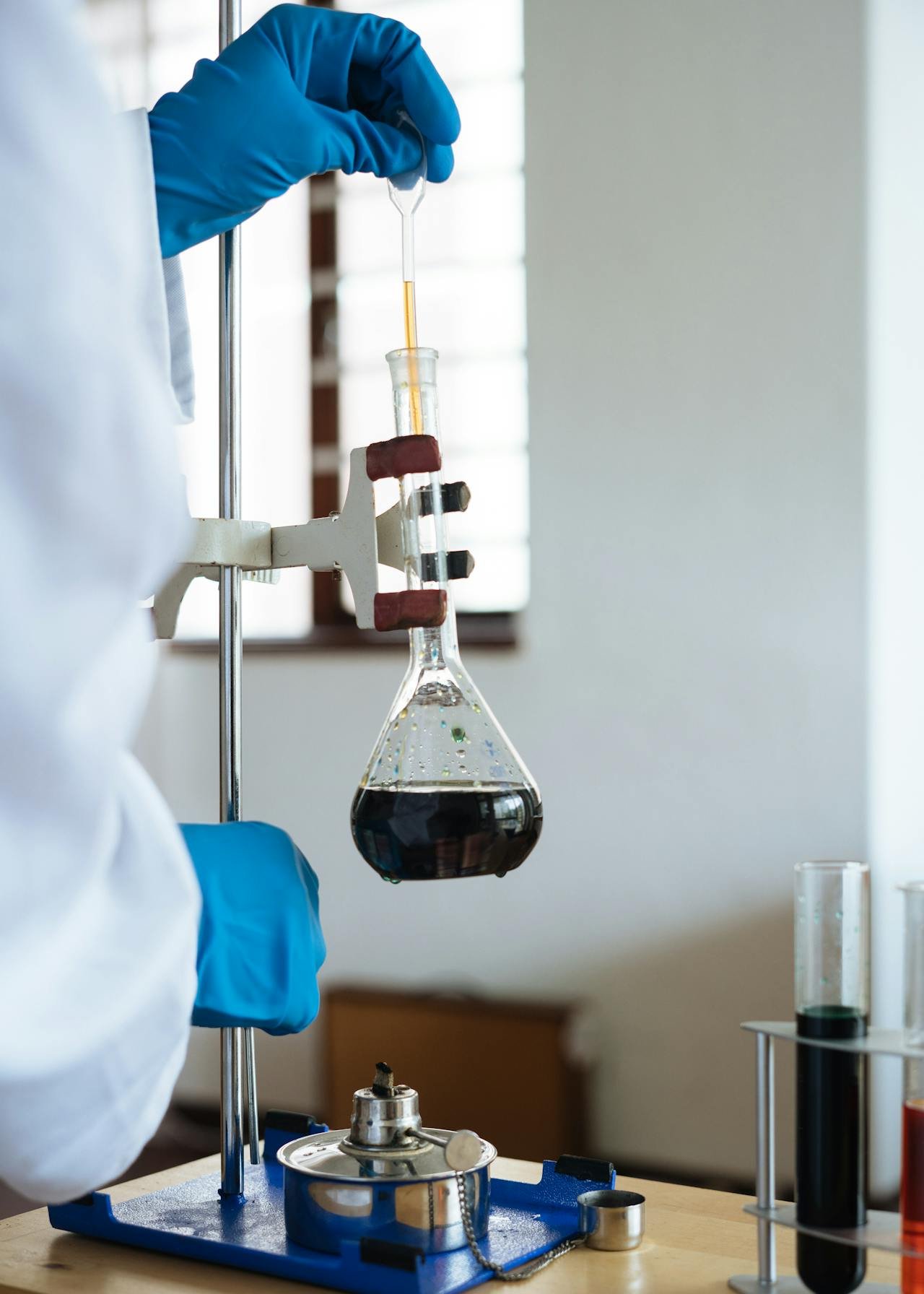
effect on body part
- Gastric Lavage
- Endoscopy
- Colonoscopy
- Biopsy
What is Laboratory?
The laboratory plays a crucial role in the diagnosis, monitoring, and management of gastrointestinal (GI) diseases. Diagnostic tests, such as blood tests, stool analysis, and biopsies, provide valuable information about the underlying cause of GI symptoms. Blood tests can detect abnormalities in liver function, anemia, and electrolyte imbalances. Stool analysis helps identify infections, parasites, and inflammatory markers. Biopsies allow for the direct examination of tissue samples to determine the presence of inflammation, infection, or cancerous changes.
Laboratory testing is also essential for monitoring the effectiveness of treatment and assessing disease progression. Serial blood tests can track changes in liver enzymes and other markers of GI health. Stool analysis can monitor the response to antibiotic therapy or the presence of ongoing inflammation. Additionally, the laboratory can provide information on the status of nutritional deficiencies, such as vitamin B12 or iron deficiency, which may contribute to GI symptoms. By providing timely and accurate laboratory results, the laboratory supports the accurate diagnosis, appropriate treatment, and ongoing monitoring of GI diseases, ultimately improving patient outcomes.

effect on body part
- Gastric Lavage
- Endoscopy
- Colonoscopy
- Biopsy
What is Laboratory?
The laboratory plays a crucial role in the diagnosis, monitoring, and management of gastrointestinal (GI) diseases. Diagnostic tests, such as blood tests, stool analysis, and biopsies, provide valuable information about the underlying cause of GI symptoms. Blood tests can detect abnormalities in liver function, anemia, and electrolyte imbalances. Stool analysis helps identify infections, parasites, and inflammatory markers. Biopsies allow for the direct examination of tissue samples to determine the presence of inflammation, infection, or cancerous changes.
Laboratory testing is also essential for monitoring the effectiveness of treatment and assessing disease progression. Serial blood tests can track changes in liver enzymes and other markers of GI health. Stool analysis can monitor the response to antibiotic therapy or the presence of ongoing inflammation. Additionally, the laboratory can provide information on the status of nutritional deficiencies, such as vitamin B12 or iron deficiency, which may contribute to GI symptoms. By providing timely and accurate laboratory results, the laboratory supports the accurate diagnosis, appropriate treatment, and ongoing monitoring of GI diseases, ultimately improving patient outcomes.
Types Of Laboratory
Clinical Chemistry Laboratory
Analyzes blood and urine samples to assess liver and kidney function, electrolyte balance, and inflammation.
Tests include liver function tests, kidney function tests, electrolyte panels, and inflammatory markers.
Microbiology Laboratory
Identifies and characterizes bacteria, viruses, and parasites that cause gastrointestinal infections.
Tests include stool cultures, urine cultures, and blood cultures.
Immunology Laboratory
Evaluates the immune system’s response to gastrointestinal diseases.
Tests include antibody testing for celiac disease, Crohn’s disease, and ulcerative colitis.
Pathology Laboratory
Examines tissue samples from the gastrointestinal tract to diagnose diseases such as cancer, inflammation, and ulcers.
Tests include biopsies, histopathology, and cytology.
Molecular Diagnostics Laboratory
Uses molecular techniques to identify genetic mutations and other genetic factors associated with gastrointestinal diseases.
Tests include genetic testing for colorectal cancer, hereditary nonpolyposis colorectal cancer, and cystic fibrosis.
Endoscopy Laboratory:
Provides specialized procedures to visualize and examine the upper and lower gastrointestinal tract.
Tests include upper endoscopy, colonoscopy, and sigmoidoscopy.
Types Of Laboratory
Clinical Chemistry Laboratory
Analyzes blood and urine samples to assess liver and kidney function, electrolyte balance, and inflammation.
Tests include liver function tests, kidney function tests, electrolyte panels, and inflammatory markers.
Microbiology Laboratory
Identifies and characterizes bacteria, viruses, and parasites that cause gastrointestinal infections.
Tests include stool cultures, urine cultures, and blood cultures.
Immunology Laboratory
Evaluates the immune system’s response to gastrointestinal diseases.
Tests include antibody testing for celiac disease, Crohn’s disease, and ulcerative colitis.
Pathology Laboratory
Examines tissue samples from the gastrointestinal tract to diagnose diseases such as cancer, inflammation, and ulcers.
Tests include biopsies, histopathology, and cytology.
Molecular Diagnostics Laboratory
Uses molecular techniques to identify genetic mutations and other genetic factors associated with gastrointestinal diseases.
Tests include genetic testing for colorectal cancer, hereditary nonpolyposis colorectal cancer, and cystic fibrosis.
Endoscopy Laboratory:
Provides specialized procedures to visualize and examine the upper and lower gastrointestinal tract.
Tests include upper endoscopy, colonoscopy, and sigmoidoscopy.
Your trusted destination for comprehensive care and management of gastroenterology diseases
Your trusted destination for comprehensive care and management of gastroenterology diseases
Treatment Approaches at Gastroworld Clinic
Complete Blood Count (CBC)
This test measures the number of red blood cells, white blood cells, and platelets in your blood. It helps diagnose conditions such as anemia, infections, and blood disorders.
Blood Chemistry Panel
It measures various substances in your blood, including electrolytes, glucose, and enzymes. It helps diagnose conditions such as diabetes, kidney disease, and liver disease.
Thyroid Function Tests
Thyroid Function tests measure the levels of hormones produced by the thyroid gland. They help diagnose conditions such as hypothyroidism and hyperthyroidism.
Lipid Profile
Gastroworld Clinic provide the Lipid Profile test measures the levels of cholesterol and triglycerides in your blood. It helps assess your risk of developing heart disease and stroke.
Gastrointestinal Cancer Tumor Markers
Gastrointestinal cancer tumor markers serve as invaluable tools in the diagnosis, prognosis, and monitoring of gastrointestinal malignancies.
Stool Analysis
It examines sample of stool to detect the presence of blood, parasites, and other abnormalities. It helps diagnose conditions such as gastrointestinal infections, inflammatory bowel disease.
Treatment Approaches at Gastroworld Clinic
Complete Blood Count (CBC)
This test measures the number of red blood cells, white blood cells, and platelets in your blood. It helps diagnose conditions such as anemia, infections, and blood disorders.
Blood Chemistry Panel
It measures various substances in your blood, including electrolytes, glucose, and enzymes. It helps diagnose conditions such as diabetes, kidney disease, and liver disease.
Thyroid Function Tests
Thyroid Function tests measure the levels of hormones produced by the thyroid gland. They help diagnose conditions such as hypothyroidism and hyperthyroidism.
Lipid Profile
Gastroworld Clinic provide the Lipid Profile test measures the levels of cholesterol and triglycerides in your blood. It helps assess your risk of developing heart disease and stroke.
Gastrointestinal Cancer Tumor Markers
Gastrointestinal cancer tumor markers serve as invaluable tools in the diagnosis, prognosis, and monitoring of gastrointestinal malignancies.
Stool Analysis
It examines sample of stool to detect the presence of blood, parasites, and other abnormalities. It helps diagnose conditions such as gastrointestinal infections, inflammatory bowel disease.
Frequently Asked Questions
What is a laboratory?
A laboratory, often abbreviated as ‘lab,’ is a facility where scientific research, experiments, and measurements are conducted. These spaces are equipped with specialized equipment and tools to facilitate various types of research, including chemistry, biology, physics, and other scientific disciplines.
What are the different types of laboratories?
Chemistry Laboratory: These labs are equipped for chemical reactions, synthesis, and analysis. Biology Laboratory: These labs are designed for biological research, including cell culture, microbiology, and molecular biology. Physics Laboratory: These labs are equipped for experiments involving physical phenomena, such as optics, electronics, and mechanics. Medical Laboratory: These labs are used for medical diagnosis, research, and treatment, including blood tests, tissue analysis, and drug testing.
What is the role of a laboratory technician?
Preparing and setting up experiments. Collecting and analyzing samples. Operating and maintaining laboratory equipment. Recording and organizing experimental data. Ensuring that laboratory safety protocols are followed.
What is the difference between a laboratory and a workshop?
While both laboratories and workshops are specialized workspaces, they serve different purposes. A laboratory is a space designed for scientific research and experimentation, often involving the use of chemicals, biological materials, or specialized equipment. In contrast, a workshop is a space designed for manual tasks, such as woodworking, metalworking, or electronics assembly. Workshops typically involve the use of hand tools and machinery, rather than scientific instruments.
What is the importance of a laboratory in scientific research?
Laboratories play a crucial role in scientific research by providing a controlled environment for conducting experiments, testing hypotheses, and analyzing data. They enable researchers to safely handle hazardous materials, use specialized equipment, and collaborate with other scientists.
